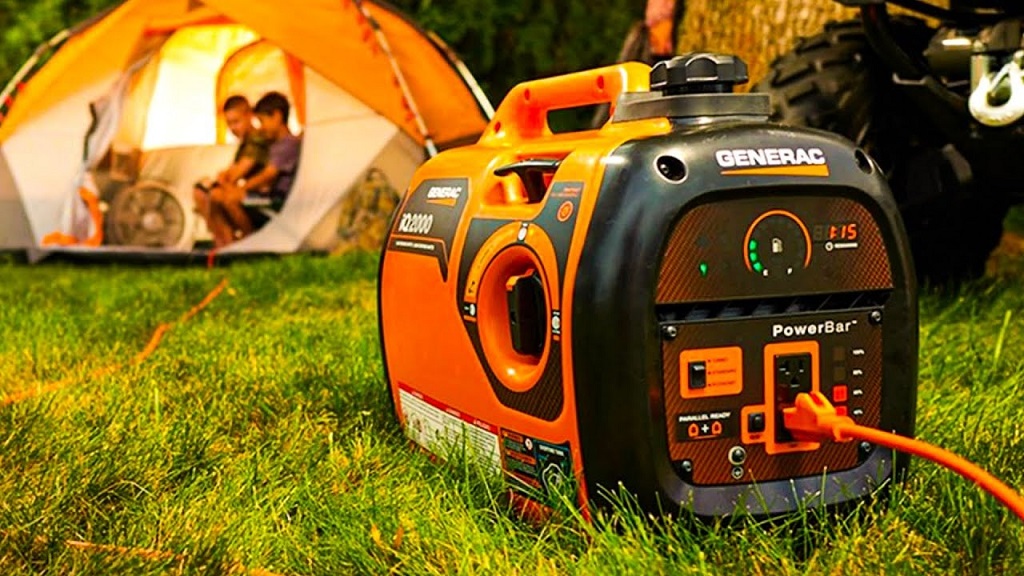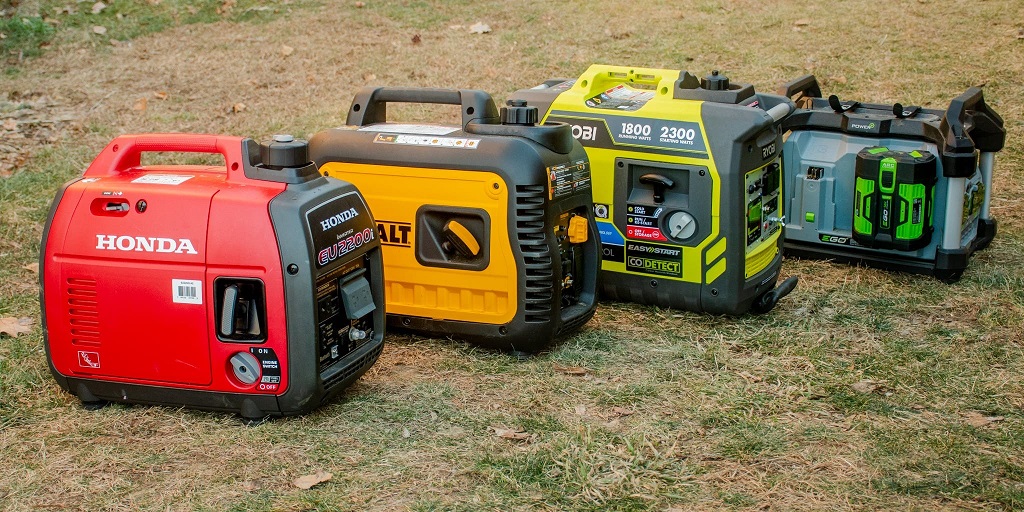
Camping is an exciting way to disconnect from the hustle and bustle of daily life and immerse oneself in nature. However, even when you’re miles away from civilization, there are modern conveniences that you might still want to bring along. Whether it’s powering lights for your campsite, charging your phone, or running essential appliances like a mini-fridge or fan, having a reliable power source can make a huge difference in your camping experience. This is where a generator comes into play. But with so many options on the market, how do you choose the best generator for camping?
This article will break down the various types of generators available, their pros and cons, and factors you should consider when selecting the ideal generator for your camping trips.
Why Do You Need a Generator for Camping?

Before diving into the different types of generators, it’s important to understand why you might need one in the first place. While camping often involves disconnecting from the grid, there are several reasons why having a generator can enhance your camping experience:
- Powering Essential Devices: Many campers bring along devices such as GPS units, phones, or even portable medical equipment. A generator ensures these devices remain powered and functional.
- Lighting: Nighttime in the wilderness can be very dark. A generator can power LED lights, string lights, or lanterns, creating a safer and more enjoyable environment.
- Cooking and Refrigeration: Whether it’s powering an electric grill or keeping food cold in a small refrigerator, a generator allows you to store and cook food without relying on campfires.
- Comfort: For longer camping trips, having a fan or heater can be a game-changer, especially if you’re camping in extreme temperatures.
Now that you know why a generator might be necessary, let’s explore the different types of generators available for camping.
Types of Generators for Camping
There are three primary types of generators to consider for camping: conventional portable generators, inverter generators, and solar generators. Each has its own advantages and disadvantages, depending on your camping style and power needs.
1. Conventional Portable Generators
Overview: Conventional portable generators are the classic gasoline or diesel-powered machines that many people picture when they think of generators. These types of generators typically have high power output and are relatively affordable compared to other options.
Pros:
- Powerful Output: Conventional generators can produce large amounts of electricity, making them suitable for campers who need to run multiple appliances at once, such as refrigerators, lights, and cooking devices.
- Durability: These generators are built to last and can handle heavy usage.
- Affordable: Generally less expensive than inverter or solar generators, making them a popular choice for those on a budget.
Cons:
- Noise: One of the biggest drawbacks of conventional generators is the noise. They can be loud, which might disrupt the peaceful camping environment and annoy fellow campers.
- Fuel Dependency: Conventional generators require gasoline or diesel to run, and you’ll need to bring enough fuel with you. In some remote camping locations, refueling might be a challenge.
- Not Environmentally Friendly: These generators emit fumes and are not the best choice for eco-conscious campers.
Best For: Campers who need a powerful, affordable option and are less concerned about noise or environmental impact. Ideal for car camping where weight and fuel storage are not major concerns.
2. Inverter Generators
Overview: Inverter generators have become increasingly popular for camping because they are quieter, more fuel-efficient, and offer stable power output, making them ideal for sensitive electronics.
Pros:
- Quiet Operation: Inverter generators are known for their quietness, producing significantly less noise than conventional generators. This makes them a better choice for campsites where noise restrictions are in place or for those who prefer a more peaceful camping experience.
- Fuel-Efficient: Inverter generators adjust their engine speed based on the load, which means they use less fuel when you’re not demanding full power.
- Stable Power: The power produced by an inverter generator is “clean,” meaning it’s safe to use with sensitive electronics like laptops, cameras, or smartphones. Conventional generators can produce power spikes, which may damage these devices.
- Portable: Many inverter generators are compact and lightweight, making them easy to transport and ideal for tent camping or backcountry trips.
Cons:
- Higher Cost: Inverter generators tend to be more expensive than conventional ones, though the benefits often justify the price.
- Lower Power Output: While great for powering smaller devices, inverter generators may not provide enough power for larger appliances or multiple high-demand devices at once.
Best For: Campers who prioritize quiet operation, fuel efficiency, and the ability to charge sensitive electronics. Great for smaller groups or individuals with moderate power needs.
3. Solar Generators
Overview: Solar generators harness energy from the sun and store it in batteries for later use. These eco-friendly generators are a favorite among campers who want to reduce their carbon footprint.
Pros:
- Eco-Friendly: Solar generators produce no emissions, making them the most environmentally friendly option.
- Quiet Operation: Since there’s no engine, solar generators operate silently, perfect for maintaining a peaceful campsite.
- No Fuel Needed: As long as there’s sunlight, you can keep your generator running without needing to bring extra fuel.
- Lightweight: Solar generators are often more portable and lightweight than fuel-powered options.
Cons:
- Weather-Dependent: Solar generators require sunlight to recharge, which can be a challenge in cloudy or shaded environments.
- Lower Power Output: While excellent for powering small devices like phones and lights, solar generators typically don’t provide enough power for larger appliances or prolonged high-demand use.
- High Initial Cost: Solar generators can be expensive upfront, although the lack of ongoing fuel costs can balance this out over time.
Best For: Environmentally conscious campers or those going on short trips where only small devices need power. Ideal for campers who spend time in sunny locations or for those looking for a quiet, emission-free option.
Read More Also: How to Visit on Getting Out
Key Factors to Consider When Choosing a Generator
Now that you’re familiar with the types of generators available, here are a few critical factors to consider when selecting the best generator for your camping trips.
1. Power Requirements
Think about what devices and appliances you’ll need to power. Will you just be charging phones and running lights, or do you need to power larger devices like a mini-fridge or electric grill? Make sure to choose a generator that can handle your wattage requirements.
2. Noise Level
If you’re camping in a quiet area or around other campers, noise levels become a crucial factor. Inverter and solar generators are much quieter than conventional models, so they may be the better choice for maintaining a peaceful campsite.
3. Fuel Type
Consider whether you’ll have easy access to fuel or if you prefer a generator that doesn’t require gasoline or diesel. Solar generators eliminate the need for fuel altogether, but they are dependent on sunlight.
4. Portability
If you’re backpacking or moving between campsites frequently, the weight and size of your generator are important. Inverter and solar generators tend to be more portable than conventional ones.
5. Budget
Generators come in a range of prices, with conventional models typically being the most affordable and solar generators the most expensive. Think about your long-term needs and balance cost with functionality.
Conclusion
Choosing the best generator for camping depends on your specific needs and priorities. If you’re looking for raw power and affordability, a conventional portable generator may suit you best. For those who prioritize quiet operation and fuel efficiency, an inverter generator is an excellent choice. Finally, if you’re eco-conscious and want to avoid fuel altogether, a solar generator offers a silent, green alternative.
